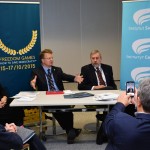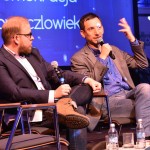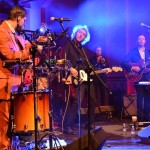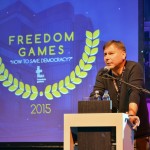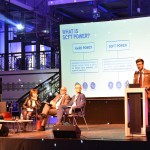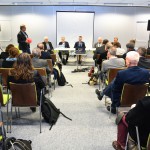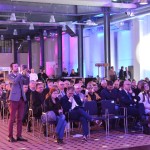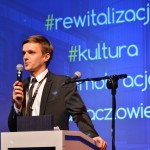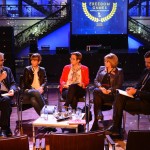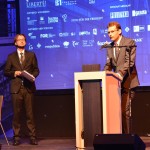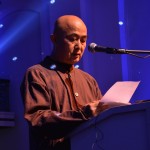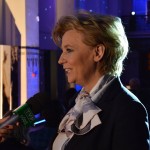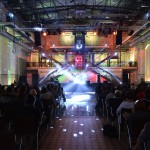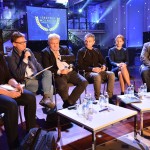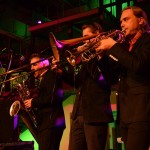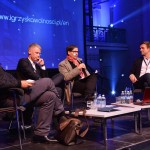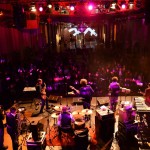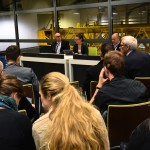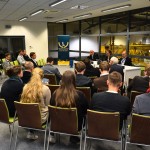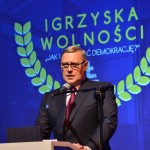Freedom Games 2015 took place in Lodz on October 15-17. For the two and a half day exhibiting 43 different events, over one hundred panellists and active participants together with almost half a thousand attendees gathered in the industrial space of the former power plant turned into an amazing EC1 – City of Culture building complex to discuss “How to Save Democracy?”.
This unparalleled endeavour, brought about thanks to the team work of a group of individuals from all around Europe and beyond, was already the second edition of the forum which was first held a year before also in Lodz but in a completely different venue and on a much smaller scale. This time, the event due to its extraordinary variety of opportunities available for participants (debates, panel discussions, lectures, round tables, and last but not the less attractive, music concerts) enabled them to not only enjoy each others company, but more importantly to charge their batteries with a great multitude of views and bold ideas on the topics of democracy, city, human rights and culture. How did it all look precisely? Let’s go about it day by day.
The Opening Night Gala (Thursday, October 15) was undoubtedly the most prestigious event that took place not only in Lodz, but in Poland for quite some time – with the participation of the former Prime Minister of Russia Mikhail Kasyanov as a key note speaker, and contributions by many other renowned individuals (the Mayor of the City of Lodz, Hanna Zdanowska, the President of the Economic Council and Member of the European Parliament Janusz Lewandowski, the Editor-in-Chief of Gazeta Wyborcza daily Adam Michnik or a Chinese award-winning author, reporter, poet and human rights defender Liao Yiwu, to name just a few). The speakers did not shy away from difficult topics that currently occupy the European minds – Mikhail Kasyanov urged the European Union “not to assent to Russia”. His courageous and inspiring speech was later widely covered in the Polish media. The evening, similarly to the two next ones (concerts by Tom Trio and Mitch & Mitch collective), was ended by a concert of live music – this time, it was the project “Beethoven: Last Beethoven Sonatas” performed by a charismatic Polish pianist Marcin Masecki.
The next two days (Friday-Saturday, October 16-17) were divided into two main thematic blocks:
1. City – Revitalisation – Culture
During events devoted to this topic, we have discussed at length civic participation, that sometimes proves more attractive than democracy in the traditional understanding itself, as well as focused on revitalisation of post-industrial cities and cultural initiatives that assist this process.
And so we have debated with the “THINKTANK Magazine” on the subject of “Private versus Public – How the Idea of Social Business Can Influence the Public Sphere?”, we devoted a few meetings to the recently released report “Cultural Reform 2020-2030-2040” (the events were supported by the Polish Chamber of Commerce) with contributions from the leading Polish lawyers, publicists, academics, philosophers and politicians (Jacek Żakowski – Polityka weekly, Jarosław Makowski – former director of the Civil Institute, co-author of the abovementioned report, Robert Kwaśnica – co-founder and Rector of the Postsecondary School of Lower Silesia, Przemysław Czapliński – Professor of contemporary literature at Adam Mickiewicz University of Poznan, among others), pondered over “The Emergence of the Urban Identity” and had a chance to find out what are the key concepts of the “Revitalisation of the City of Lodz” thanks to contribution of the Director of the Revitalisation and Development Office in the City of Lodz Office Marcin Obijalski. We also debated what is the “Role of Culture in the Process of Revitalisation of Cities” (with participation of Osamu Okamura – Czech-Japanese architect and program director at reSITE and Teele Pehk – CEO of the Estonian Cooperation Assembly, urbanist at the Estonian Urban Lab).
Moreover, during the meetings with Polish writers (Jacek Dukaj, Filip Springer, Jakub Żulczyk, Gaja Grzegorzewska) we have tried to answer the question what is the image of Polish cities and how will the city of future look like. And we dare to say that we have accomplished our mission – attendees left full of new ideas and willing to experience even more during next year’s edition of the forum.
2. Democracy – Human Rights
This thematic block was mainly focused on (as the name itself suggests) discussing the issues of how can we work for democracy as well as protect human rights in countries neighbouring the European Union and all around the globe.
The attendees had a unique opportunity to immerse themselves in a mixture of presentations followed by debates and discussions (eg. “Soft Power and Digital in today’s diplomacy” powered by Facebook, with contributions by the editorial director of Le Monde Sylvie Kauffmann, Jonathan McClory of Portland Communications and Elizabeth Linder – the Head of government and politics outreach EMEA for Facebook; “Combatting Euroskepticism and Radicalisms” by Republikon Institute; or “Consequences of the Financial Crisis and Democracy in the EU” powered by European Liberal Forum with contributions from Jan-Werner Mueller of Princeton University and Philippe Legrain – British political economist, former adviser to European Commission President Jose Manuel Barroso), roundtables (closely following the title of the forum “How to Save Democracy?” or “Future of the Democracy in Ukraine”), conversations and lectures (“Will Changes in Ukraine Last?” delivered by the Editor-in-Chief of the Ukrainian TVi Vitaly Portnikov; “Migration – Ultimate Test for Europe” with Italian war correspondent covering war in Syria Francesca Borri; “Is Different Russia Feasible?” by Vladislav Inozemtsev – Russian economist, founder and director of the Center for Post-Industrial Studies in Moscow; and many more) and panel discussions in a more prototypical form (“Media versus Democracy” with Latvian investigation journalist Inga Springe and Roman Skrypin – Ukrainian journalist and founder of the Hromadske.TV; “Does Promoting Democracy Have a Future?” organised by People In Need; among others). The passionate closing speech on democracy was delivered by Ivan Krastev, Bulgarian political scientists and the Chairman of the Centre for Liberal Strategies in Sofia.
To summarize this quite elaborate and multilayered programme, we could say that Freedom Games 2015 “How to Save Democracy?” was unquestionably a great opportunity for networking, sharing individual experiences and transferring good practices. Thanks to the interdisciplinary nature of the event – a mixture of experts, media, political scientists, politicians, artists, writers and business – Freedom Games had also a fantastic cultural and artistic dimension.
Interestingly enough, the name of the forum is not coincidental and the entire event was designed as a homage to the stemming from the ancient times democratic traditions and the partly foregone ideas – the laurel leaves visible on all promotion materials (starting with the printed programme, to bags and t-shirts) were just the appetiser – apart from that, the discussions were held in the rooms named after the Greek philosophers (Socrates, Plato, Aristotle), while in the main hall was located a flat horizontal interactive screen on which participants and attendees could mark their presence – a kind of digital agora, so to say.
The event was organised by Fundacja Idustrial (Eng. Industrial Foundation), based in Lodz, 102 Piotrkowska St., the publisher of the quarterly magazine Liberté!, in cooperation with EC1 – City of Culture (Co-Organiser), EC1 Fundacja Łódzka (Strategic Sponsor), and in partnership with Ministry of Foreign Affairs of the Republic of Poland, the City of Lodz, Friedrich Naumann Foundation for Freedom, the National Centre for Culture (Pl. Narodowe Centrum Kultury), Kultura Dostępna.
Programme Partners: 4liberty.eu, Svaboda Institute, 6. Dzielnica, Civic Development Forum (FOR), Faculty of International and Political Studies of the University of Lodz, Helsinki Foundation for Human Rights, Republikon Institute, People In Need, THINKTANK Magazine, Facebook, thinktankcyfrowy.pl, Ashoka Poland, Res Publica, European Liberal Forum, [nie wiem co to za ostatnie logo na stronie w patronach (?)].
Media Patronage: Polityka weekly, Gazeta Wyborcza daily, TOK FM
Freedom Games 2015 were insured by PZU




